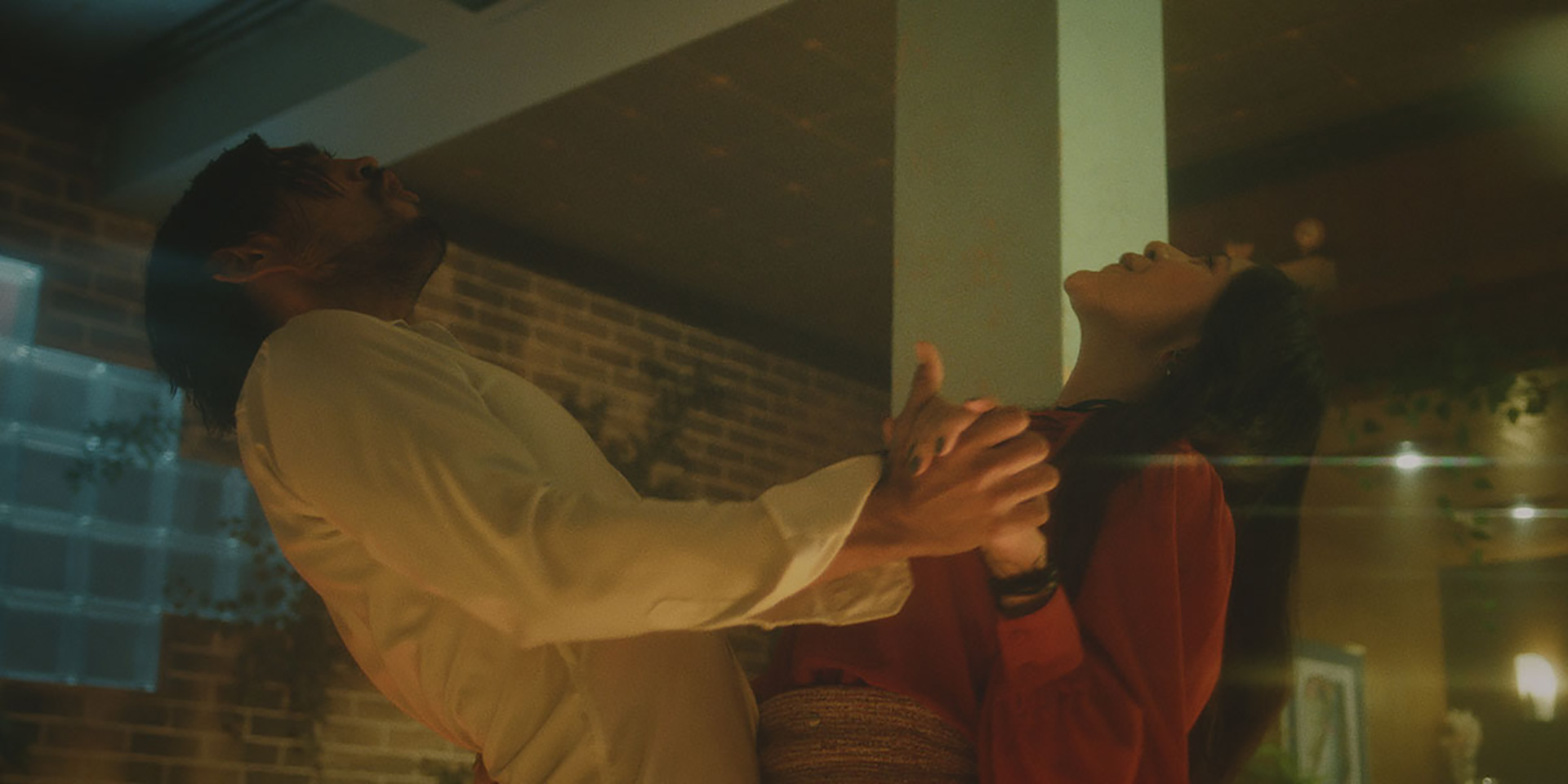It’s all a matter of perspective. If you’ve never known a privileged existence, what difference to your world would an apocalypse truly introduce? There’s always been fire for She (Elle-Máijá Tailfeathers) and He (Braeden Clarke). There’s always been tragedy. Whether living under the oppressive rule of Canadian law or being ignored and/or disrespected when leaving the reservation for the cities that they were told would open their arms if only they gave into demands for assimilation, life has always been a struggle to reconcile the present with an immovable past and uncertain future. So when the lightning and thunder turn to earthquakes and hurricanes, it’s no surprise that She and He sip their drinks at the bar and laugh while everyone else around them goes insane.
Because this is an indigenous story, there’s also an element of perspective where it concerns Mother Nature. Where She and He see the world’s potential for destruction as a chance for rebirth, their bartender (Rossif Sutherland) and many others running and screaming in the streets only see the horror of death. And despite that death being self-inflicted—either through global warming or the depletion of natural resources—it still comes to them as a shock. The orchestrators of their own demise still play the victim while those who were forced to go along for the ride sit back and wait for the new beginning that always arrives regardless of whether people will remain. Why not make the best of it? Why not allow themselves to find love?
That’s the overt focus of Darlene Naponse’s Stellar: as two celestial bodies collided millions of years ago (meteorite and Earth) to create a crater rim of rich metals, She and He collide this specific day to pick the other up from the bottom of their glass and well-worn malaise to find a smile that can’t help rising to the surface whenever they “accidentally” meet eyes. Their presence here is less about lamenting their present, though, than it is introspectively figuring out where their paths take them next. Do they stay here in the city? Do they think about going to homes they haven’t been in years? Where does self begin and environment end? Or does their calm in the face of this chaos prove home remains inside them?
So despite being a one-location drama, the two do travel a vast landscape within themselves and their memories as the world beyond the bar’s window changes from fire to forest to ocean. Naponse has crafted a visual mood board of sorts wherein the conversations and/or emotions of those inside alter the tumultuousness outside. They talk of “aunties” and two strangers arrive who can’t help but seem familiar. They talk of education and the hardships their parents had to endure to follow rules foisted upon them by a white ruling class as a white professor suddenly appears to give two cents that they surely did not ask to receive. Music plays on the jukebox to potentially raise or lower the temperature as random people arrive to highlight the difference.
It could be two dudes embroiled in a knock-down-drag-out fight encroaching on She and He’s smooth vibes, pushing them to darker places in their minds than they had been before. Maybe it’s two women in robes promising safety by feigning compassion when we know they’re just trying to convert wayward souls into their self-righteous indoctrination. My favorite is when a guy barges in early on to breathlessly wonder aloud, “What’s happening?!” And when She and He merely look back and say, “Change.” he, of course, incredulously dismisses them as “Indians!” before running off to find the validation he so craves. Only K.C. Collins’ nonplussed patron walking on clouds fits the mood. He’s loving the weather’s show, basking in its unpredictable excitement, and applauding those beautiful souls who agree.
And beautiful they are. She and He spend half the movie quietly working up the courage to talk to the other and half finding ways to close the space between them until there’s none left. Stellar is politically fueled foreplay both for the recognition that who these two are beyond the gaze of those that have lorded over them for centuries is greater than that dismissal and that they no longer must play the game and in turn forsake their identity for success. They can find happiness in themselves. In each other. In their ancestors. They are the new Adam and Eve awaiting the end of a nightmare outside of their control so that they can rebuild paradise with a long-awaited kiss. From urban anxiety to natural tranquility.
It’s simultaneously metaphorical and literal, shifting from one and melting into the other. Naponse intentionally uses repetition to put us into a trance and “find [ourselves] in the believed, suggested, theatrical, and cinematic realism.” The experience won’t therefore be for everyone. Some will wonder what’s going, preventing themselves from simply letting the work impact them on a level beyond mainstream convention. Hopefully the chemistry between Tailfeathers and Clarke will keep them seated to increase the chance they’ll break through to the other side of consciousness and see beneath the surface. Their characters are returning to their roots—shedding skin they’ve worn at the behest of others—to live unencumbered. They must only remember the trauma of history is but a moment and the power of their spirit eternal.
Stellar had its world premiere at the Toronto International Film Festival.

